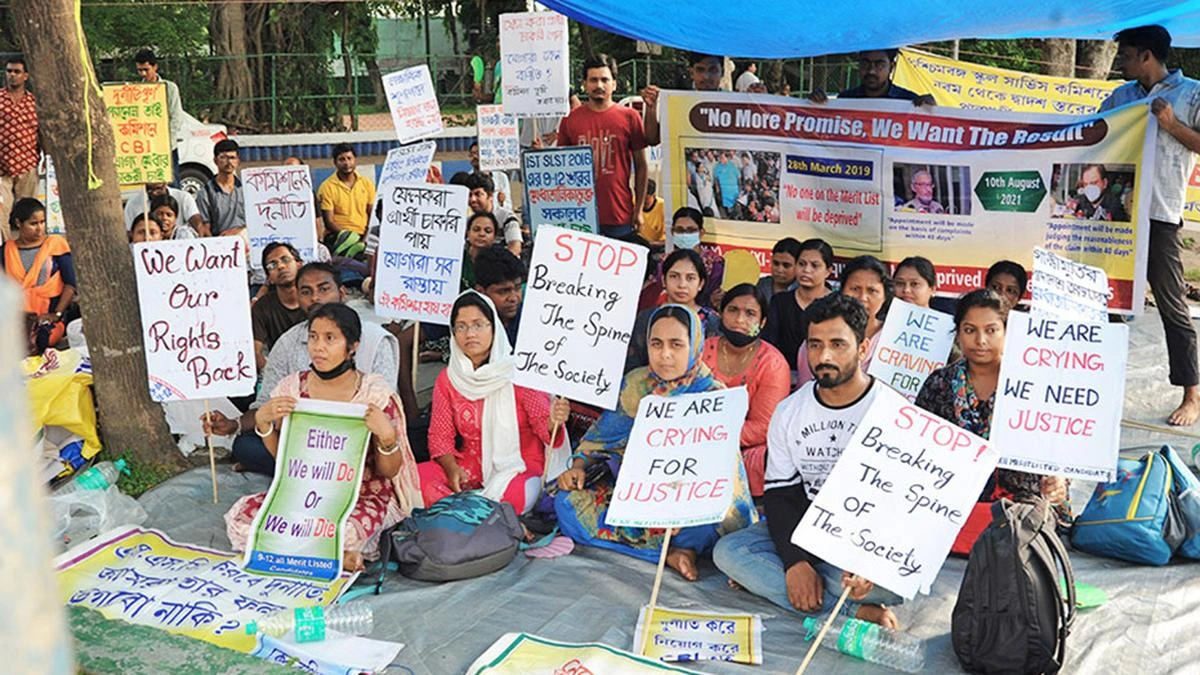In a significant development for West Bengal’s education sector, the Supreme Court of India has dismissed all review petitions concerning the 2016 SSC Teacher Recruitment Case, confirming the cancellation of approximately 26,000 teaching jobs. This verdict upholds the earlier decision of the Calcutta High Court and affects both eligible and ineligible candidates, casting a shadow of uncertainty over their futures.
Background of the Case
The legal battle began when the Calcutta High Court ordered the termination of nearly 26,000 teaching appointments from the 2016 SSC recruitment panel, citing widespread allegations of corruption. Following this, the state government, the School Service Commission (SSC), and a group of eligible candidates challenged the High Court’s ruling. However, the Supreme Court initially upheld the lower court’s decision. Subsequently, a number of eligible candidates filed review petitions, hoping for a reconsideration of the judgment.
The case was heard by a bench led by Justice Sanjay Kumar. During the hearing, when the petitioners’ counsel, Menoka Goswami, sought clarity on the outcome, the judge promptly announced that a decision had been made and all petitions were dismissed. This swift action left many petitioners disheartened, who felt that their pleas were not given adequate time or consideration.
Major Impacts of the Ruling
The Supreme Court’s verdict has not only led to the loss of jobs but also brought several other serious consequences to the forefront.
• Job Cancellation: The jobs of roughly 26,000 teachers appointed under the 2016 panel have been canceled, effective immediately.
• Uncertain Future: With their jobs gone, these teachers now face an uncertain future. To regain employment, they will likely need to re-appear for a new recruitment exam.
• Salary Repayment: The Calcutta High Court’s order requiring the repayment of salaries received by those who lost their jobs may now be enforced, adding a significant financial burden to the dismissed teachers.
Despite this major setback, eligible candidates have vowed to continue their legal fight, exploring options such as a Special Leave Petition (SLP) and other legal avenues.
Legal Avenues and Future Outlook
With the dismissal of the review petitions, the next step for the affected teachers is to file a Curative Petition. However, legal experts have cautioned that the chances of success with a curative petition after a review has been dismissed are extremely slim.
For the time being, the dismissed teachers have been granted a brief reprieve and are allowed to remain in their posts until December 31st of this year. Their long-term future hinges on the outcome of subsequent legal challenges and the decisions made by the government. This ruling has intensified the debate on the plight of deserving candidates caught in the middle of a systemic failure and is expected to have a lasting impact on the state’s education system.


